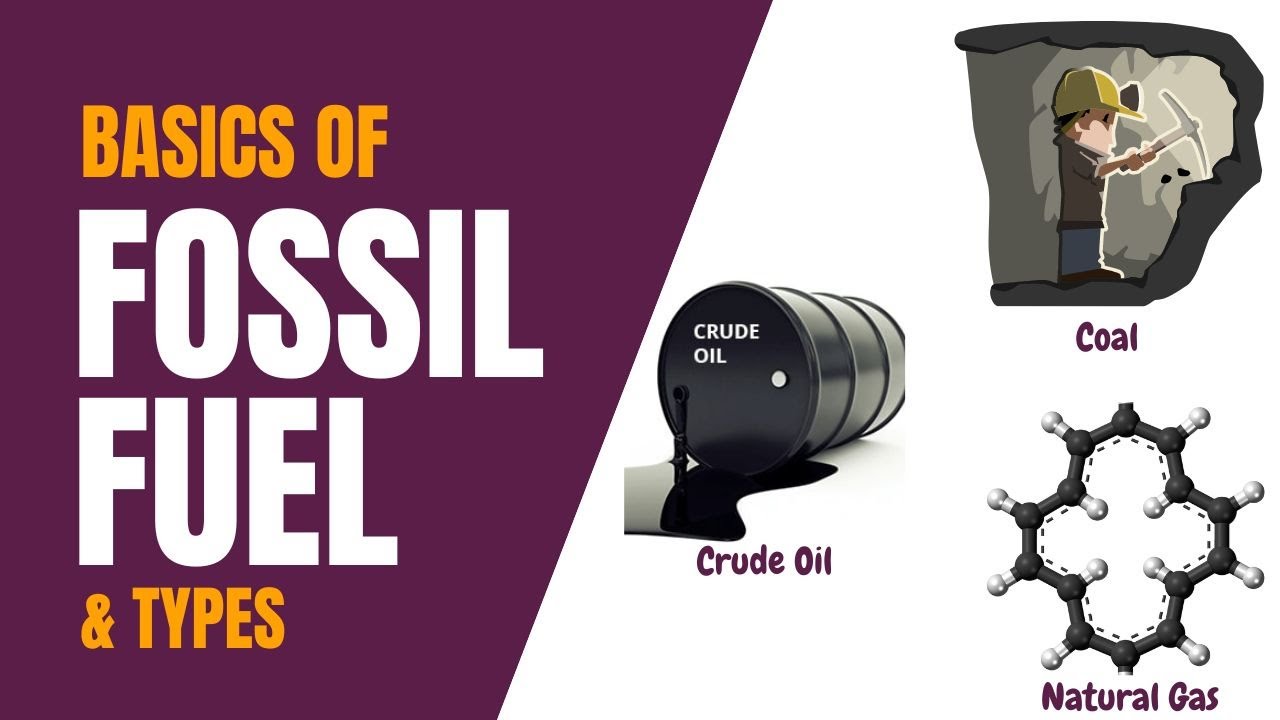Fossil Fuels 101
Summary
TLDRFossil fuels, derived from ancient plants and organisms, are categorized into coal, oil, and natural gas, each formed under specific conditions of pressure, heat, and time. These non-renewable resources have been pivotal for industrialization and power generation, but their extraction and use contribute significantly to environmental issues, including climate change due to carbon dioxide emissions. As reserves deplete, the focus shifts towards sustainable and renewable energy alternatives.
Takeaways
- 🌿 Fossil fuels originate from ancient plants and organisms that lived during the Carboniferous period, around 362 to 286 million years ago.
- 🌳 The formation of fossil fuels occurred in swamps where dead plants and organisms decomposed under layers of sediment over millions of years.
- ⚙️ Three main types of fossil fuels are coal, oil, and natural gas, each formed under different conditions of organic matter, temperature, and pressure.
- 🌱 Coal is primarily derived from ferns, plants, and trees that hardened due to pressure and heat.
- 🦐 Oil is formed from small organisms like zooplankton and algae, which decomposed under pressure into simpler compounds.
- 🔥 Natural gas is a gaseous form of fossil fuel that resulted from oil being exposed to even more heat and pressure.
- 💡 Fossil fuels are valued for their high energy density and are extensively used for electricity production, transportation, and manufacturing various products.
- 🌐 The distribution of fossil fuel reserves can lead to geopolitical issues due to their scarcity and the valuable nature of these resources.
- ♻️ Fossil fuels are non-renewable, taking millions of years to form, and once depleted, they cannot be replenished within a human lifespan.
- 💸 The depletion of accessible reserves has led to the development of technologies for extracting more challenging or unconventional reserves, which can be costly and raise safety and environmental concerns.
- ⚠️ Fossil fuel extraction and use are major contributors to carbon dioxide emissions, causing climate change and posing environmental and health risks, prompting a shift towards renewable energy sources.
Q & A
What is the origin of fossil fuels?
-Fossil fuels originated from ancient plants and organisms that lived during the Carboniferous period, approximately 362 to 286 million years ago.
What were the environmental conditions like when fossil fuels were forming?
-The land was covered with swamps filled with organisms and plants, which contributed to the formation of fossil fuels.
How many major types of fossil fuels are mentioned in the script?
-The script mentions three major types of fossil fuels: coal, oil, and natural gas.
What specific plants and organisms contributed to the formation of coal?
-Coal was formed from ferns, plants, and trees which hardened due to pressure and heat.
How was oil formed from the organic matter?
-Oil was formed from small organisms like zoo plankton and algae where pressure caused the more complex organic matter to decompose.
What is the difference between oil and natural gas in terms of formation?
-Natural gas was formed by the same processes as oil but was exposed to more heat and pressure, causing it to further decompose into a gaseous form.
Why are fossil fuels considered valuable energy sources?
-Fossil fuels are considered valuable because they have a high energy density and are the world's dominant energy source.
What are some applications of fossil fuels mentioned in the script?
-Fossil fuels are used for electricity production, transportation fuels, and in the manufacturing of common products like plastics, cosmetics, and some medicines.
How do the geographic locations of fossil fuel reserves affect geopolitics?
-The natural geographic allocation of fossil fuel reserves can lead to scarcity and geopolitical issues due to the high value of these resources.
Why are fossil fuels classified as non-renewable resources?
-Fossil fuels are non-renewable because they take millions of years to form, and once used, they will not be replenished within a human lifetime.
What are some environmental and health concerns associated with fossil fuels?
-Fossil fuels are the largest emitters of carbon dioxide, a greenhouse gas that causes climate change. Their production also causes environmental and human health issues.
What is driving the search for alternative energy sources as mentioned in the script?
-Society is looking for alternative, more environmentally sustainable and renewable energy sources due to the concerns over the environmental impact and depletion of fossil fuels.
Outlines

Этот раздел доступен только подписчикам платных тарифов. Пожалуйста, перейдите на платный тариф для доступа.
Перейти на платный тарифMindmap

Этот раздел доступен только подписчикам платных тарифов. Пожалуйста, перейдите на платный тариф для доступа.
Перейти на платный тарифKeywords

Этот раздел доступен только подписчикам платных тарифов. Пожалуйста, перейдите на платный тариф для доступа.
Перейти на платный тарифHighlights

Этот раздел доступен только подписчикам платных тарифов. Пожалуйста, перейдите на платный тариф для доступа.
Перейти на платный тарифTranscripts

Этот раздел доступен только подписчикам платных тарифов. Пожалуйста, перейдите на платный тариф для доступа.
Перейти на платный тариф5.0 / 5 (0 votes)






